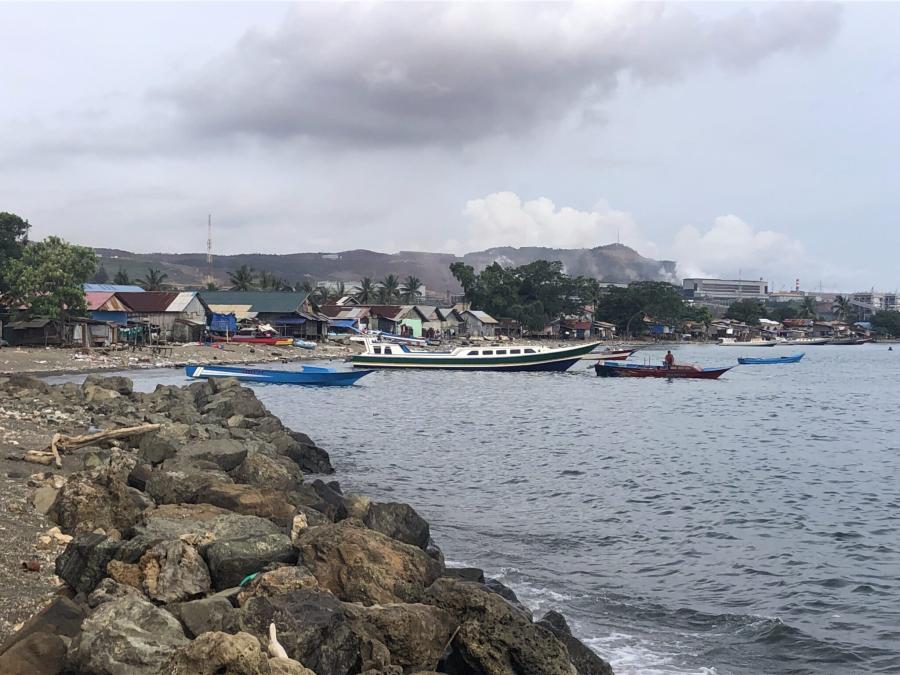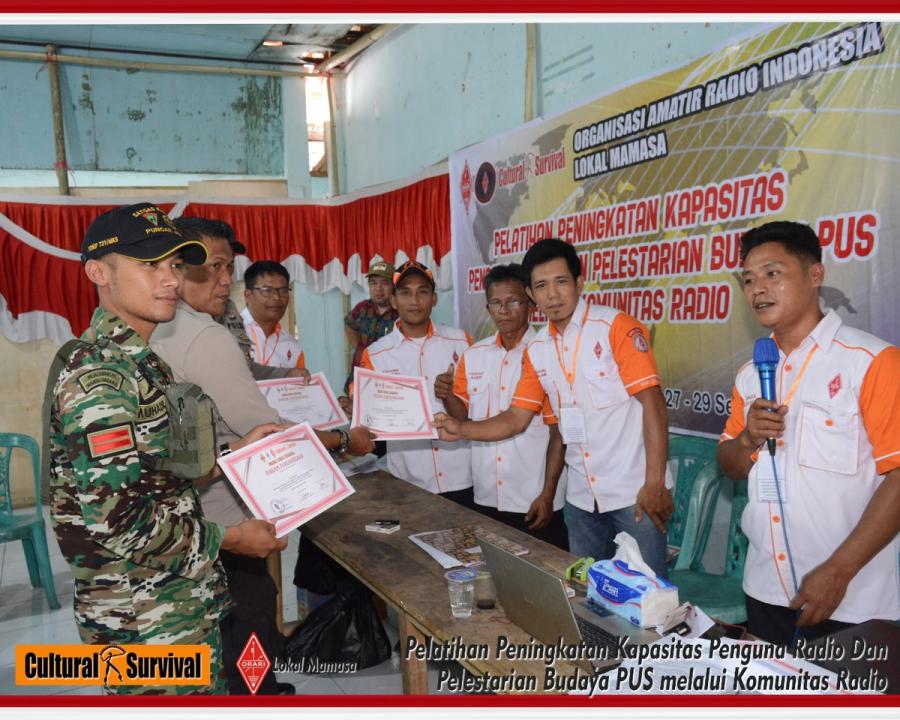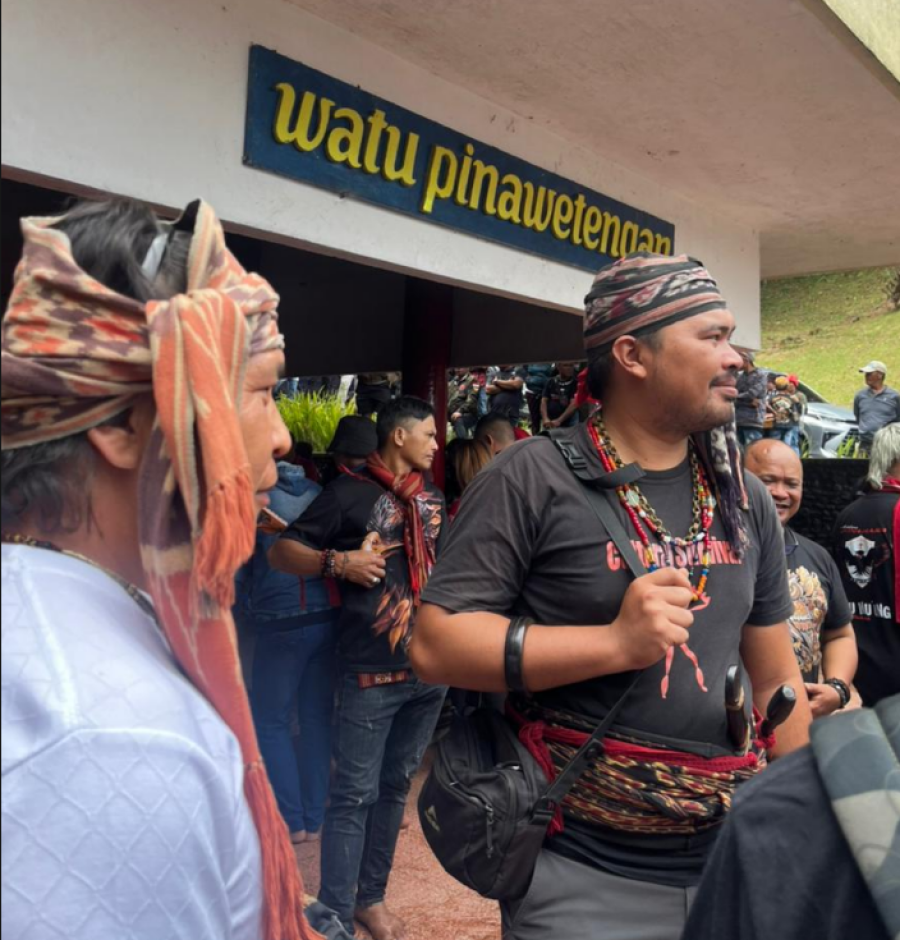PT International Nickel Indonesia (Inco) is a majority-owned subsidiary of the world's largest nickel miner, Inco of Canada.1 Inco started exploring for nickel in Indonesia in 1967 and began actual commercial mining in 1978. Inco has already invested over $2 billion in its Indonesian nickel mine and smelting operation and is slated to continue working until at least 2025.(2)
Arianto Sangaji, Director of an Indonesian-based non- governmental organization, claims that thousands of his people in South Sulawesi have been displaced by Inco and remain homeless, still awaiting proper compensation. According to Sangaji, many of Inco's promised benefits never reached his people. New schools and health care facilities were built, but are open only to Inco employees. Sangaji maintains that as many as 99 percent of Inco's Indonesian workers come from the distant island of Java and that Inco has in no way benefited the local people of Sulawesi.
Although Inco compensated both the central government in Jakarta and the regional government in Sulawesi, most of the money has ended up in the hands of corrupt government officials while the original landowners have received nothing. According to Andy Vasso, another Indonsian activist, "it's been about 30 years [since Inco began mining in Sulawesi] and during that period [Inco has] not compensated some of the people for the land that's been used for mines. And some people who were compensated were forced to take a compensation package for which the value [of] a square meter of land was less than the price of a single cigarette."(3) According to Roger Moody, "PT Inco has already ripped some 50,000 tonnes of ore from Bahomotefe from what are euphemistically called "test pits." The unsuspecting traveler comes suddenly upon open bore holes, 4 meters square, plunging to depths of 30 meters.... Last year, in response to community complaints, Inco said it would fill in the pits and fence off these holes -- and that's the last the people have heard of it."(4)
In April 2000 Vasso and Sungaji made news accross Canada by showing up at Inco's annual general meeting in Toronto to protest the company's treatment of the Bungku of Sulawesi. Vasso and Sungaji want their people to be compensated for the land taken from them. They want Inco to pay back rent on the land they have used for the last thirty years, and to fulfill its promises to provide drinking water, health, education facilities, and a pollution-free environment. They are not asking that the company leave their island, but rather that local indigenous groups have more power in deciding what happens on their land. They feel that the Bungku are entitled to join the workers, shareholders, and partners of Inco, as well as Indonesian government officials, in benefiting economically from the mining operations on their island. Both activists offer suggestions for improvements: training and employing more Sulawesi residents at Inco and allowing others to continue to farm their lands, many of which have already been confiscated.(5)
Vasso, Sungaji and other activists from Indonesia also visited Davis Inlet in Labrador to consult with the Innu Nation leaders on their common problem with Inco. The recent discovery of nickel in Voisey's Bay, located in north central Labrador near Davis Inlet and Innu territory, has sent Inco scrambling to own a part of the discovery. The Diamond Fields Resource, Inc., the company that made the find, estimates that the complete deposit contains more than 100 million tons of ore. The nickel's quality also makes this one of the richest deposits ever found.
Vasso and Sungaji are concerned for the Innu, as mining in Voisey's Bay is et to begin soon. When asked why he traveled to Canada, Sangaji said, "It's important that Canadians put pressure on Inco Ltd., as the largest (58 percent) owner of Inco Indonesia. It's also important to have coordinated action to make changes [in Canada]."(6)
The Innu's concerns about the possibility of large-scale mining in Voisey's Bay include ownership issues and the effects a corporate presence may have on their community. They have long been involved in land claims negotiations with the Department of Indian and Northern Affairs of the Government of Canada and the Government of Newfoundland. The recent ore discovery has exacerbated the situation because their land claim covers the area rich in deposits. According to Simeon Tshakapesh, former Chief of the Mushuau Innu, "[If] exploration and development of our land continues, we will lose everything. [Inco] is talking about jobs and opportunities, but we are talking about our land, our rights, and our way of life."7
The Innu consistently suffer the intrusions of low-flying NATO planes (see Lucia Clark's report in this issue) and the threat of hydroelectric dams inundating their native territories (see our Summer 1999 issue). Organized Innu protests since the 1980s have resulted in numerous arrests but have steadily built up pressure on the Canadian government to recognize Innu Sovereignty.
The Indonesians' visit has strengthened the Innu's position against mining on their lands. Jim Brokenshire, the past chair of the Citizens Mining Council of Newfoundland and Labrador, says "It was very affecting to hear the details of their 30-year experience in a country as different from ours as Indonesia. I guess the bottom line for me is hearing that it is absolutely essential for the public to be vigilant in all of the ongoing negotiations and deals, and knowing that the examples they gave show the potential for a large gap between promises and what ends up happening."9 The visit also helped inform the Indonesians' struggle. "A valuable lesson that we took from the exchange with people in Davis Inlet is that their people have been very united in their opposition to the presence of the mining company. They had one voice in their struggle -- in their effort to defend their land rights. We were very impressed that in their actions everybody is involved in the community. The old grandmas down to the youngest children are all participating, and that is one lesson that I will take back to the Island of Sulawesi and we will see how we can replicate that lesson."(10)
References & further reading:
1. Roger Moody, "Dirty Landlord," Inside Indonesia, No. 61.
2. www.inco.com
3. CBC Radio Labrador Morning Show; reporter Conrad Lutes.
4. Roger Moody (partizans@gn.apc.org) is research coordinator for Minewatch Asia-Pacific (MWAP), which has offices in Britain and the Philippines and assists community organizations concerned about mining impacts. MWAP helped residents of Bahomotefe and Soroako visit Canada in early 2000 to meet with the Innu Nation in Labrador and community leaders at Inco's operations in Ontario.
5. Innu People Forum List: INNU-L@YorkU.ca
6. Northern Life. Author Mick Lowe.
7. www.survival.orb.uk/index2.htm
8. "Canada's Tibet - the killing of the Innu" was written by: Colin Samson, Department of Sociology, University of Essex, UK James Wilson, author of "The Earth Shall Weep: a History of Native America" and Jonathan Mazower, campaigns coordinator, Survival International.
9. VOCM Radio News Reporters Phelan and Gallant.
10. See note 4.
Article copyright Cultural Survival, Inc.



